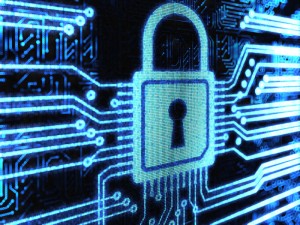 Since cyber attacks and intellectual property thefts remain viable threats, many companies operating across multiple industries adopt information assurance (IA) policies, plans and procedures to help them to protect the information that is within their care. While IA involves the protection of both digital and physical information assets, computer information systems are the main focus of IA because most companies have evolved into near paperless organizations. IA functions promote the five characteristics of a secure system which are integrity, availability, authentication, confidentiality and non-repudiation. Most organizations find the IA functions to be too complex to implement without the help of trained IA experts. Here are some of the specific functions conducted by IA professionals, the education and training needed for the profession and some industries that hire IA practitioners.
Since cyber attacks and intellectual property thefts remain viable threats, many companies operating across multiple industries adopt information assurance (IA) policies, plans and procedures to help them to protect the information that is within their care. While IA involves the protection of both digital and physical information assets, computer information systems are the main focus of IA because most companies have evolved into near paperless organizations. IA functions promote the five characteristics of a secure system which are integrity, availability, authentication, confidentiality and non-repudiation. Most organizations find the IA functions to be too complex to implement without the help of trained IA experts. Here are some of the specific functions conducted by IA professionals, the education and training needed for the profession and some industries that hire IA practitioners.
Functions of IA Practitioners
The job descriptions of most IA professionals correspond closely to the maintenance of the five characteristics of a secure system. For example, IA professionals can help their organizations to maintain the integrity of digital information systems by generating policies for users to change their passwords periodically. This practice helps to prevent the unauthorized access of computer systems by those who would want to tamper with the systems’ stored information and comprise the information’s integrity. An IA practice that supports the availability of information found on computer systems is the performance of periodic back ups that are stored externally. This important activity ensures that information is available whether computer systems are breached by cyber criminals or natural disasters strike work sites. Some organizations still have physical documents to safeguard, and IA professionals help them to comply with this need by initiating policies that limit access to the documents to only authorized persons. They can implement this type of initiative with the use of a combination safe and end of day security checks.
Education and Training for IA Professionals
Since most IA practitioners must have a thorough understanding of how computers process, transmit and store information, most IA practitioners have undergraduate degrees in disciplines like computer science, computer engineering or network engineering. Some of them have business degrees with specializations in management information systems. Specific undergraduate degree programs in IA exist, but usually the discipline is taught at the graduate school level. Savvy students choose Master of Science in IA degree programs that are offered by recognized centers of excellence for IA and information security. Also, they rarely let their knowledge get stale and dated; they avoid this dilemma by taking continuing education courses and earning industry certifications like the Global Information Assurance Certificate.
Where IA Professionals Work
IA professionals are hired by nearly all companies regardless of industry which makes the acquisition of the IA skill set very valuable. However, some industries traditionally pay more than others. For example, nearly all government agencies claim to have shortages of skilled IA and information security personnel, and they tend to pay above average wages to those who qualify for the available jobs. Also, the new rules for electronic records keeping in the healthcare industry has contributed to the need for IA professionals in the industry; IA experts who also have healthcare experience command the highest pay.
Related Resource: Become an IT Project Manager
Conclusion
IA professionals work with information security analysts to help plan security measures into an organization’s operations. They implement new security related processes as well as monitor and evaluate the success of a company’s compliance with the industry standards for information assurance.
